NBP periodically publishes short articles on nuclear energy matters which either have a geographic or topical focus. Feel free to browse through all our articles and if you would like to read on something specific, please use the search function. For example, you can search for articles relating to Africa or India or financing or SMR etc. You can also use the filter function to see articles pertaining to Asia, Africa, India or Türkiye.

Advancing Nuclear Energy in Africa: A Comprehensive Overview
The African continent is currently experiencing an upswing in interest and commitment towards incorporating nuclear energy into their national power generation strategies. NBP has elaborated a ranking method which highlights the potential of African countries.
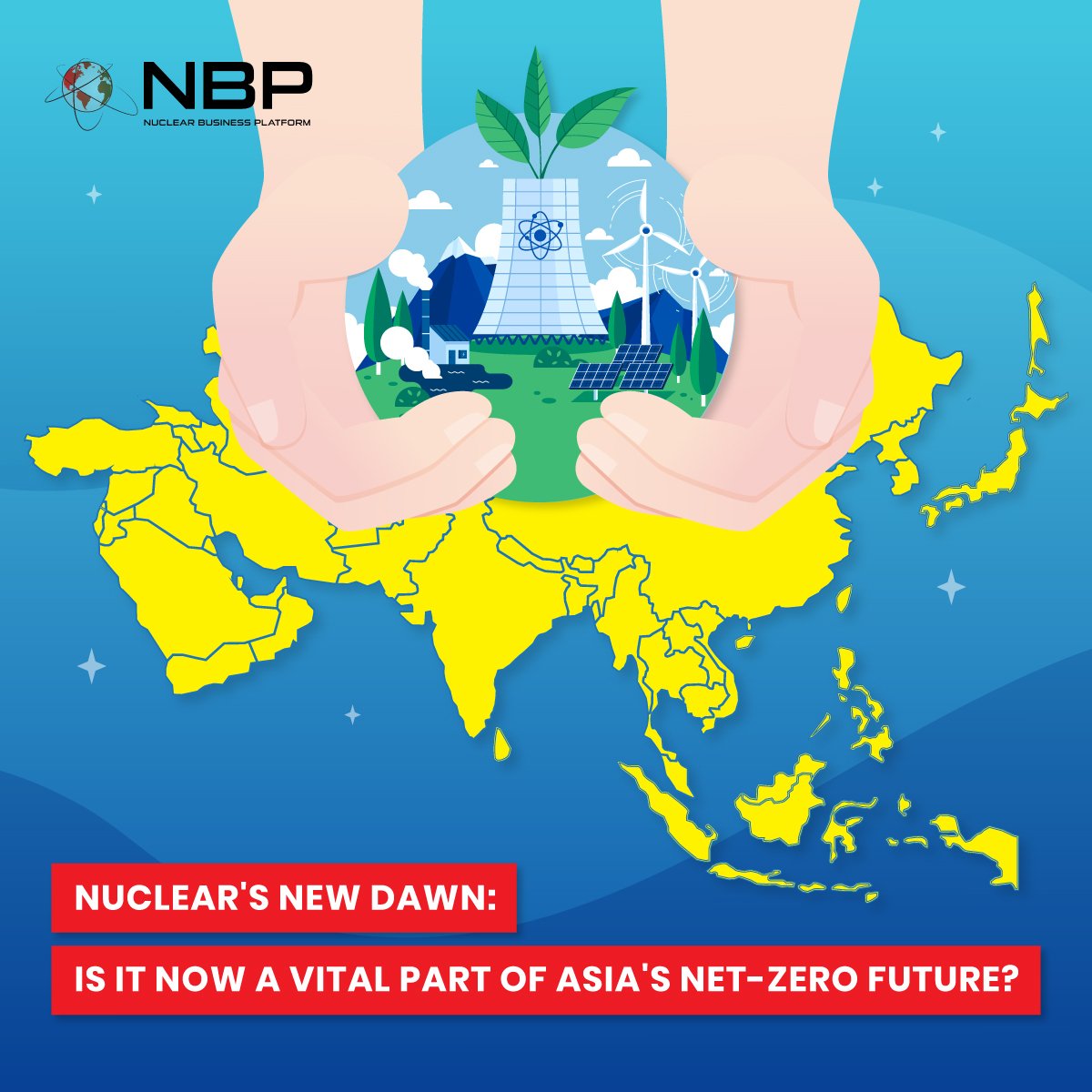
Nuclear's New Dawn: Is it Now a Vital Part of Asia's Net-Zero Future?
Asia has recognized the critical role nuclear energy plays in meeting its burgeoning energy needs while tackling climate change. Numerous Asian nations have embraced nuclear power as a viable and sustainable solution to reduce their carbon footprint. Currently, Asia boasts approximately 140 operational nuclear reactors, and plans for an additional 40-50 reactors are in place, showcasing Asia's commitment to nuclear energy.

Strategic Imperatives for Africa's Nuclear Energy Advancement: A Focus on Public-Private Partnerships
The realization of Africa's nuclear energy ambitions is confronted by a formidable challenge—mobilizing the substantial capital required for nuclear power development and transmission infrastructure. With traditional government funding proving inadequate, the pivotal role of Public-Private Partnerships (PPPs) emerges as a strategic solution. In this discourse, we delve into the nuanced dynamics of PPPs, elucidating their significance in addressing the financial complexities, fostering technology transfer, and mitigating risks associated with Africa's nuclear energy pursuits.
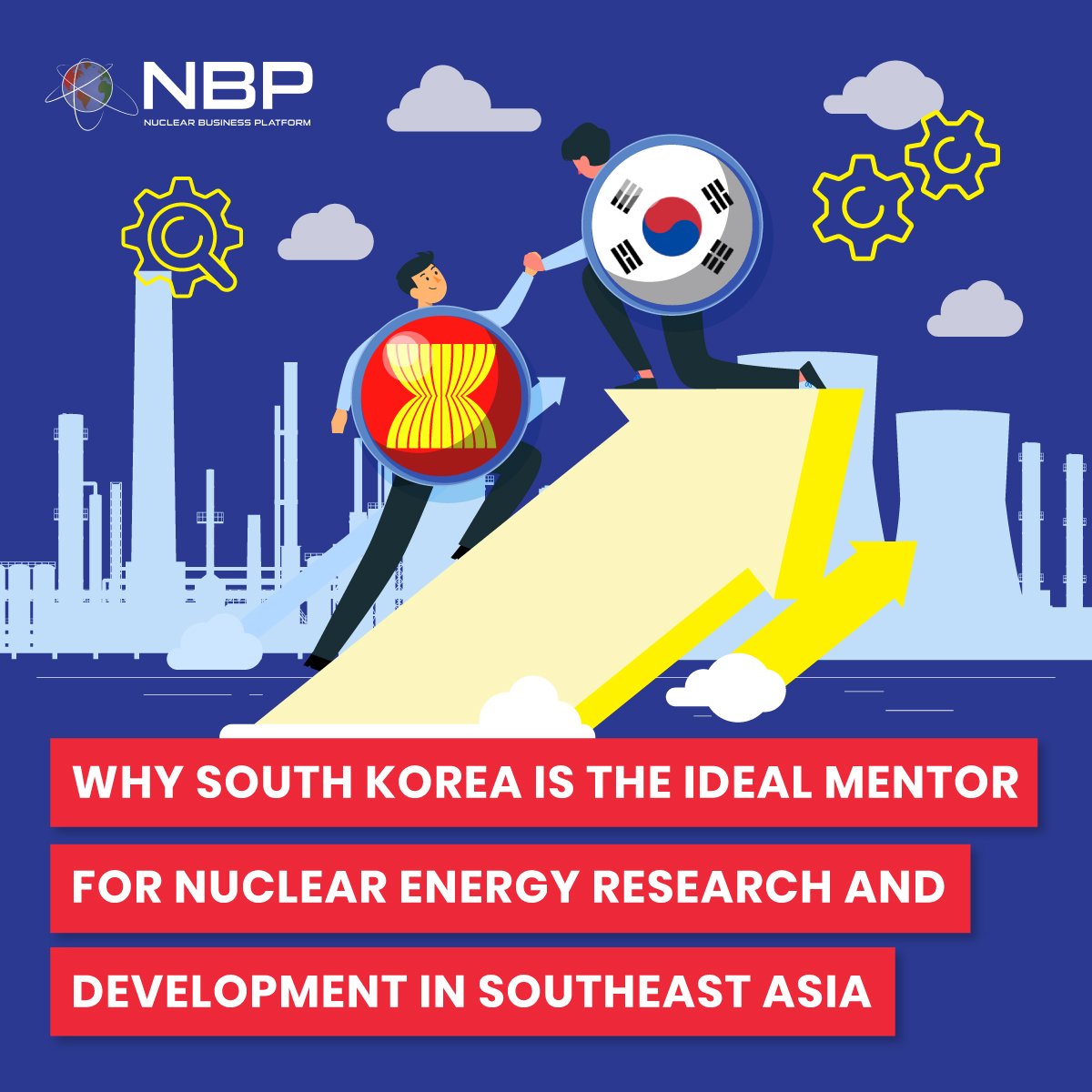
Why South Korea Is the Ideal Mentor for Nuclear Energy Research and Development in Southeast Asia
Some Southeast Asian nations are exploring the possibility of incorporating nuclear energy. While nuclear plants can generate reliable, emissions-free energy, investing requires thorough research and expertise. Emerging nuclear energy nations should build robust R&D programs to enable safe, sustainable sectors. Strong R&D develops critical knowledge and best practices for operations and regulation. Tapping into South Korean expertise could allow efficient, safe adoption. Only few countries can match South Korea's 35+ years of focused nuclear energy R&D.
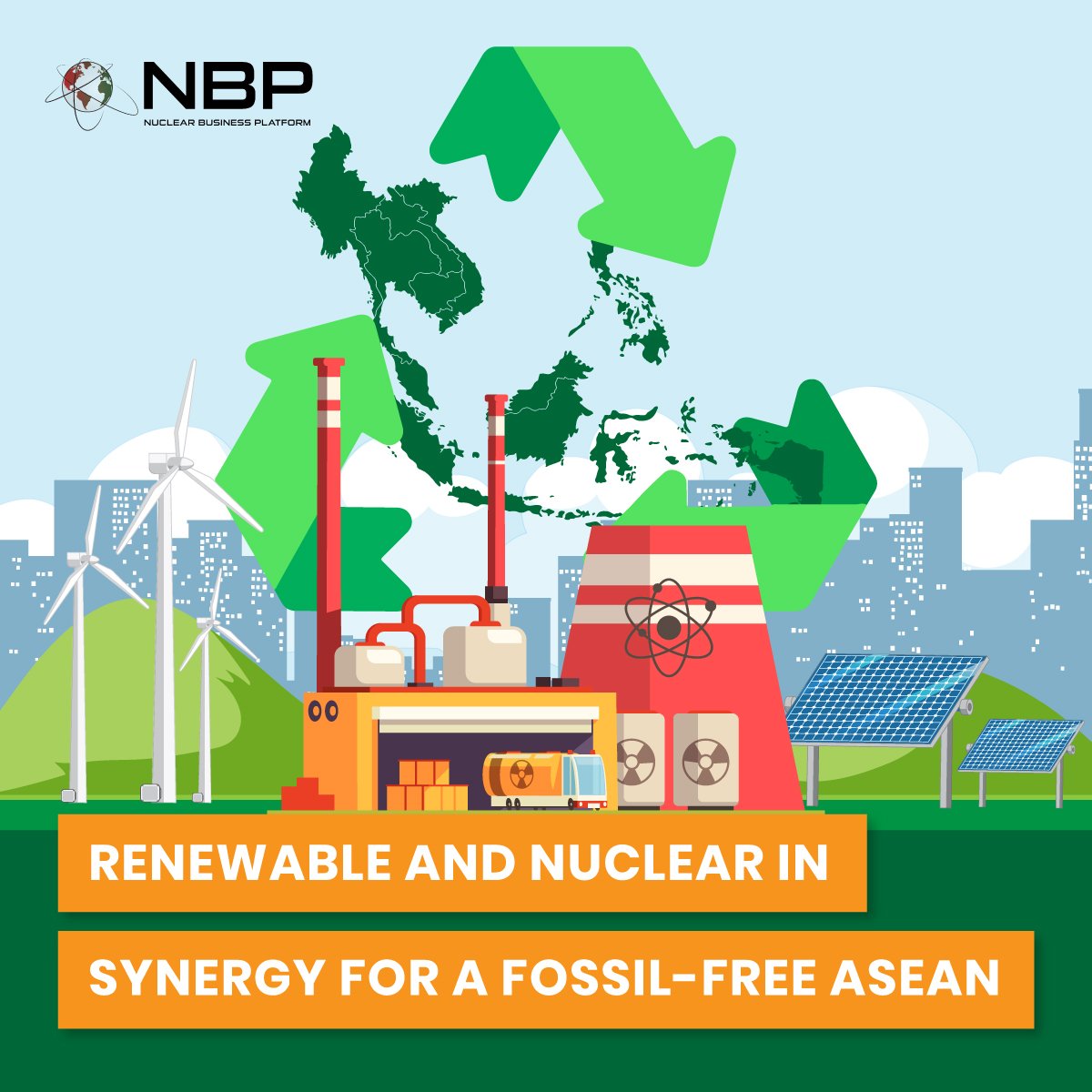
Renewable and Nuclear in Synergy for a Fossil-Free ASEAN
ASEAN is actively addressing the energy challenges accompanying its remarkable economic growth. The broader vision involves a comprehensive energy transition, acknowledging the need to reduce reliance on fossil fuels and increase the share of renewables and clean technologies, emphasizing a sustainable and green energy future for the ASEAN region.

Empowering Africa's Energy Future: Early Engagement of SMR Vendors and the Prospect of Prototype Demonstrations
Early engagement between SMR vendors and African countries is mutually beneficial. For vendors, it establishes a foothold in a new market and provides valuable experience in developing countries. African countries benefit by building local expertise and securing a reliable source of clean energy.
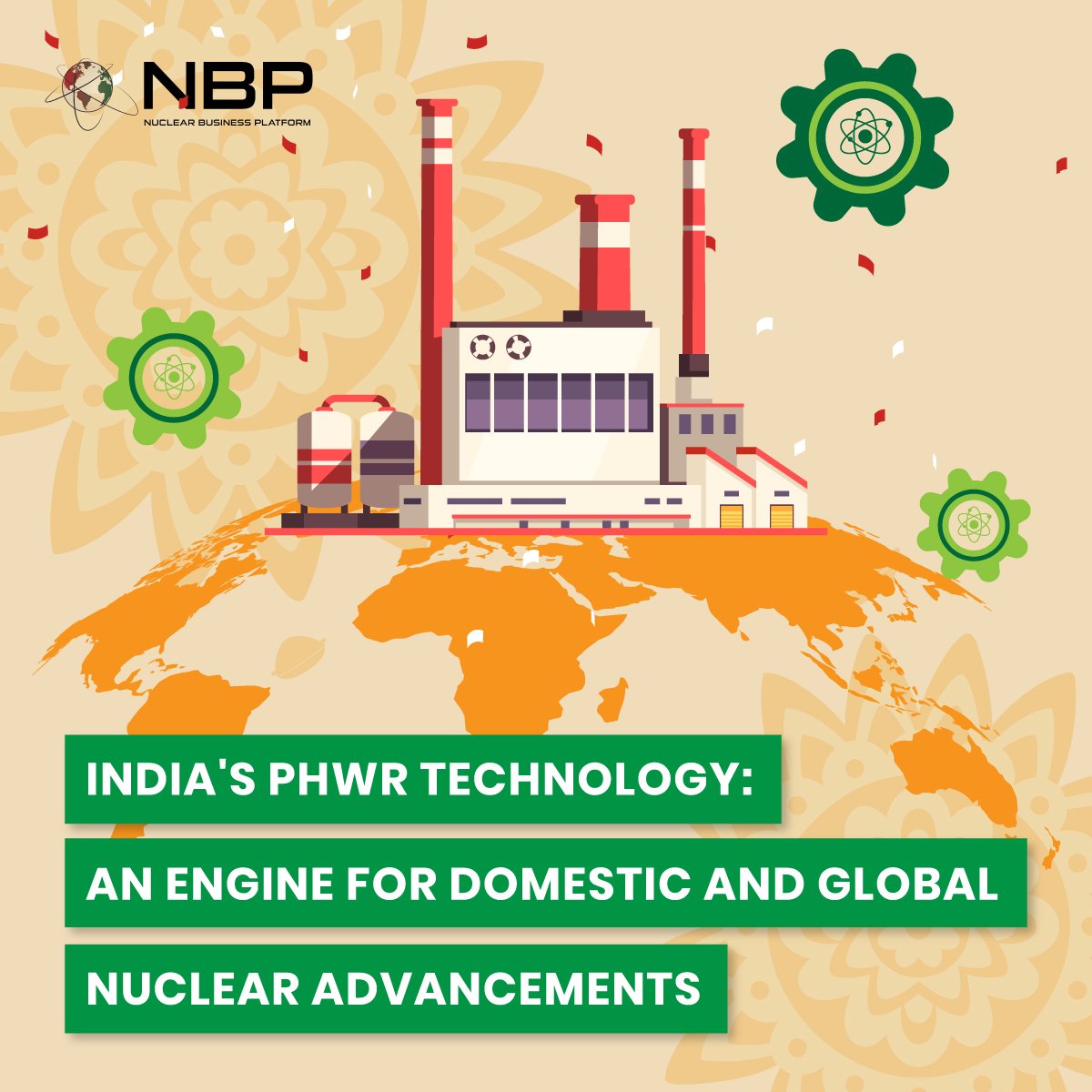
India's PHWR Technology: An Engine for Domestic and Global Nuclear Advancements
India has a unique opportunity to play a pivotal role in strengthening the international nuclear supply chain, offering its Pressurized Heavy Water Reactor (PHWR) technology as a beacon for other nations seeking to adopt nuclear energy. While 'Make in India' has seen success across various sectors, the nuclear domain has yet to witness significant traction. India's PHWR technology, however, holds immense potential not only as a cost-effective solution but also as a catalyst for global nuclear growth.

Indonesia's Presidential Candidates Stand on Nuclear Energy
As Indonesia stands at the crossroads of its political landscape, the upcoming presidential election in February 2024 brings to the forefront critical discussions about the nation's energy future. With a population nearing 280 million and energy demands escalating, the focus on clean and sustainable energy sources, particularly nuclear energy, is gaining prominence. This analysis delves into the positions of the three presidential candidates – Prabowo Subianto, Anies Baswedan, and Ganjar Pranowo – on nuclear energy and their broader views on clean energy, climate change, and Indonesia's ambitious carbon reduction targets.

Uganda's Nuclear Aspirations: A Path to Sustainable Development
Uganda is faced with the dual challenge of meeting the energy demands of its burgeoning population and ensuring sustainable development. The country's total installed power generating capacity, primarily from hydroelectricity, is estimated to be around 1268 MW(e) as of December 2020. However, with an annual electricity demand growth rate of 15%, Uganda is exploring nuclear energy as a strategic component of its energy mix.
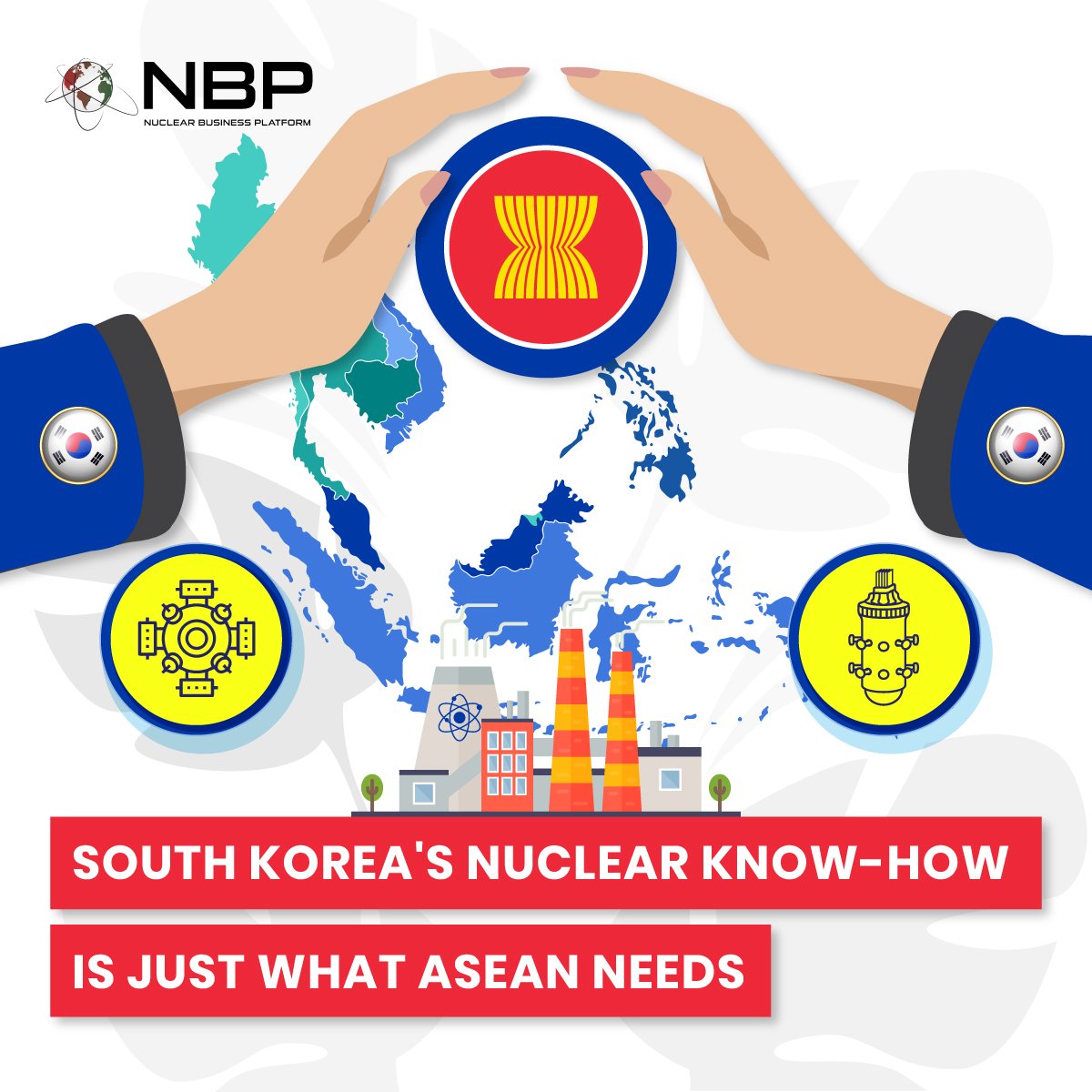
South Korea's Nuclear Know-How is Just What ASEAN Needs
As ASEAN countries are starting to explore nuclear energy to meet rising energy demands, developing the human resources and workforce needed to support safe and secure nuclear power programs remains a key challenge across the region. With advanced nuclear technology and long experience nurturing human capital, South Korea is poised to be an ideal partner in helping ASEAN build the skilled manpower needed to harness nuclear energy safely and efficiently.
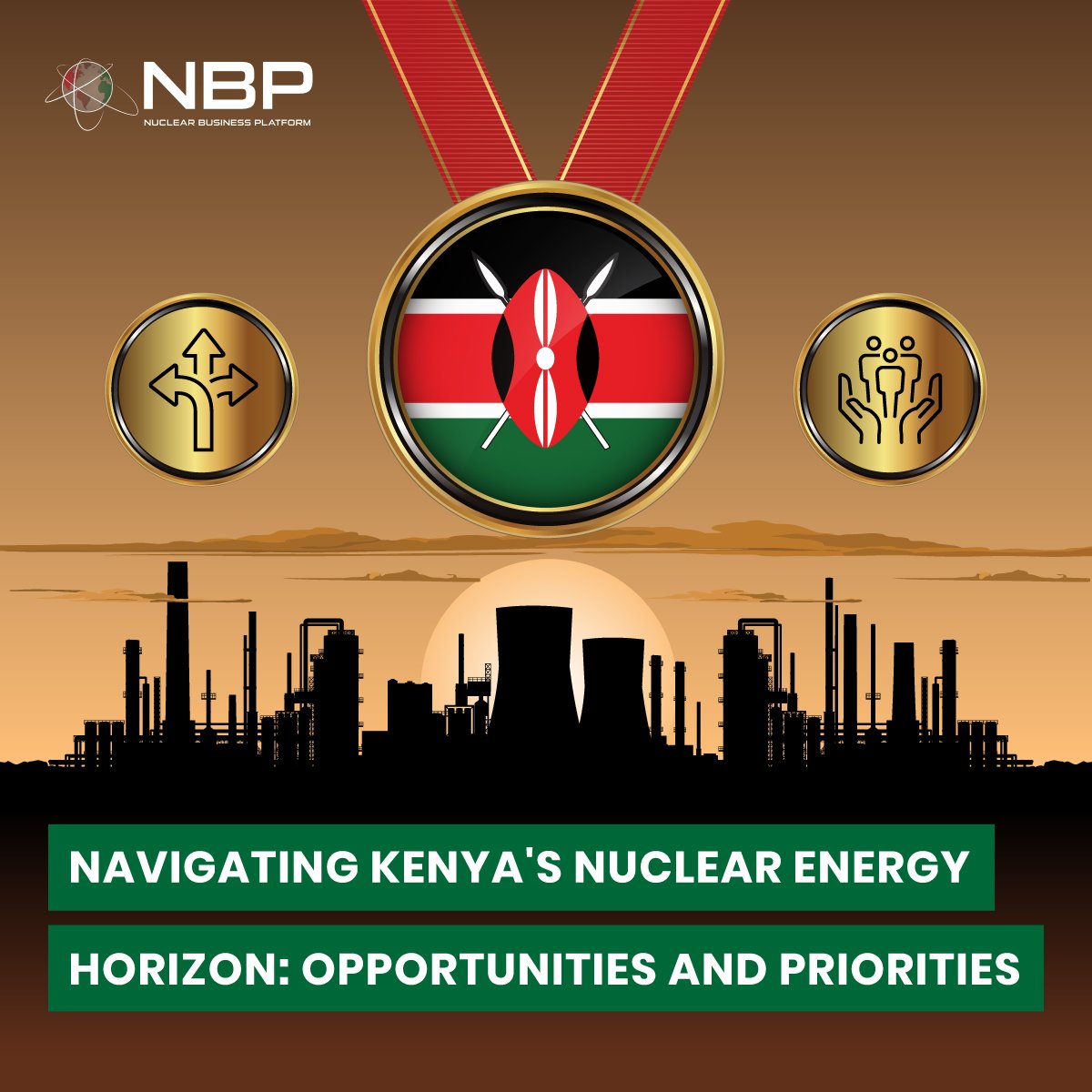
Navigating Kenya's Nuclear Energy Horizon: Opportunities and Priorities
Kenya's pursuit of nuclear power and energy is gaining momentum under the leadership of the Nuclear Power and Energy Agency (NuPEA). With the successful completion of the Integrated Nuclear Infrastructure Review (INIR) mission by the International Atomic Energy Agency (IAEA) in 2021, Kenya entered the second phase of IAEA's milestone approach, positioning itself for preparatory works toward a nuclear power program.
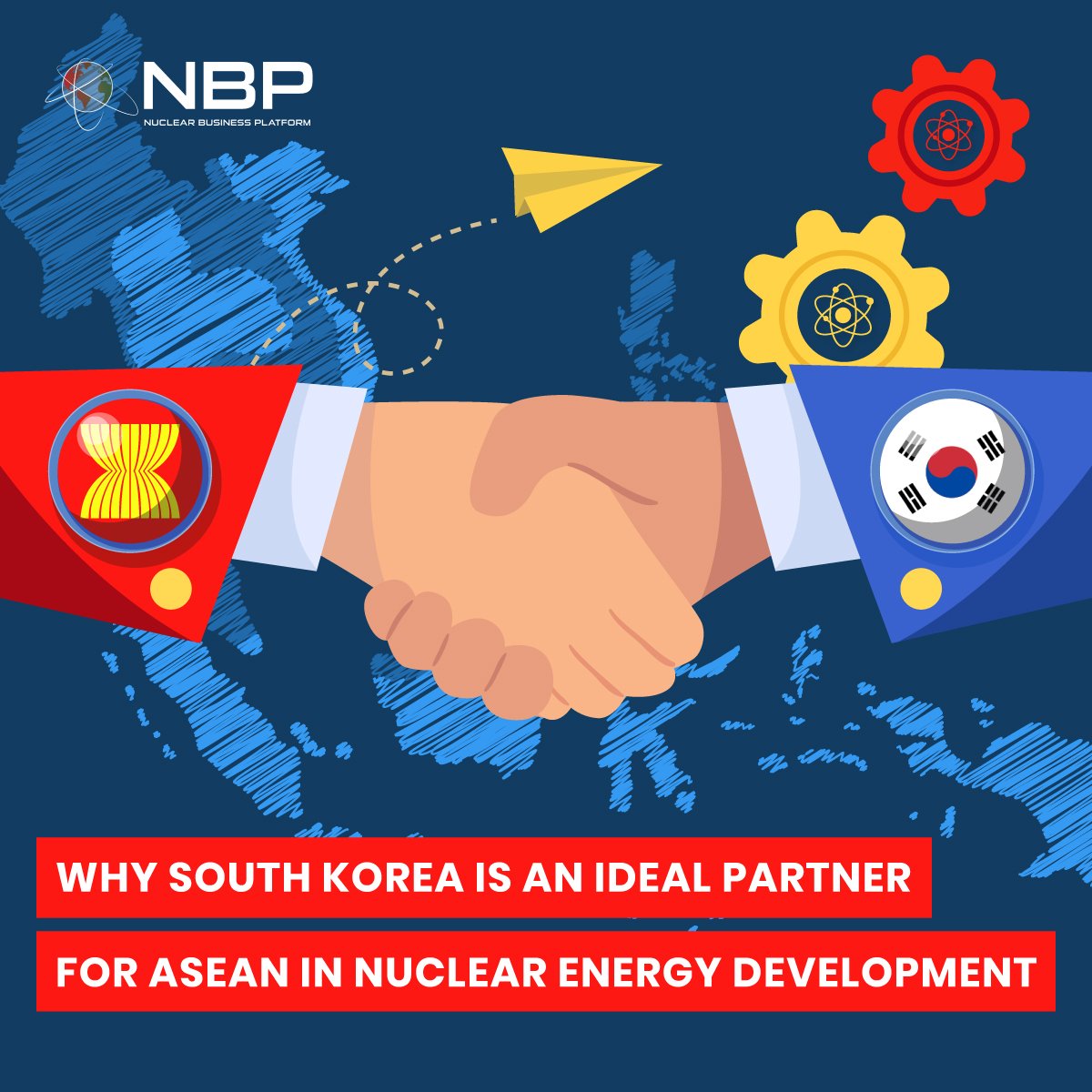
Why South Korea Is an Ideal Partner for ASEAN in Nuclear Energy Development
South Korea has emerged as a true leader in nuclear energy technology and expertise. South Korea's expertise and decades of experience offer invaluable guidance for ASEAN states embarking on nuclear power.

Nigeria's Quest for Sustainable Nuclear Energy: Embracing SMRs
Nigeria's pursuit of nuclear energy has been marked by significant developments, and its commitment to establishing a robust nuclear energy program. In particular, Small Modular Reactors (SMRs) are one of the options that Nigeria is considering to introduce to its energy mix. This article delves into Nigeria's journey towards adopting SMRs as part of its nuclear energy program, emphasizing the challenges and opportunities associated with this endeavor.

South Korea-ASEAN Partnership: A Win-Win for ASEAN's Sustainable Future
As ASEAN countries aim to both decarbonize and meet rapidly growing energy demand, strong partnerships are key to reaching these goals. In this context, we firmly believe that South Korea and ASEAN are inherently well-suited partners in shaping a sustainable future together. South Korea has amassed world-leading expertise in various fields while ASEAN economies are projected to be among the fastest-growing in the coming decades.

Empowering Ghana: The Epicenter of Nuclear Workforce Development
Ghana's ambitious journey into the world of nuclear energy is underpinned by a multi-faceted approach, combining international cooperation, a commitment to IAEA standards, and a wealth of experience. This holistic strategy positions Ghana to not only achieve its clean energy goals but also emerge as a regional leader in nuclear workforce development and best practices.

Powering the Future : Nuclear Potentially Can help Malaysia to Become Clean Energy Hub
With a commitment to environmental sustainability, Malaysia has set ambitious goals to become a carbon-neutral nation by 2050, with a targeted 70% renewable capacity by the same year. However it is important to note that renewable energy alone may not suffice to entirely replace fossil fuels as the primary baseload energy source. Another low-carbon energy source, such as nuclear power, has emerged as a viable alternative to complement RE through hybrid technology in the energy mix.
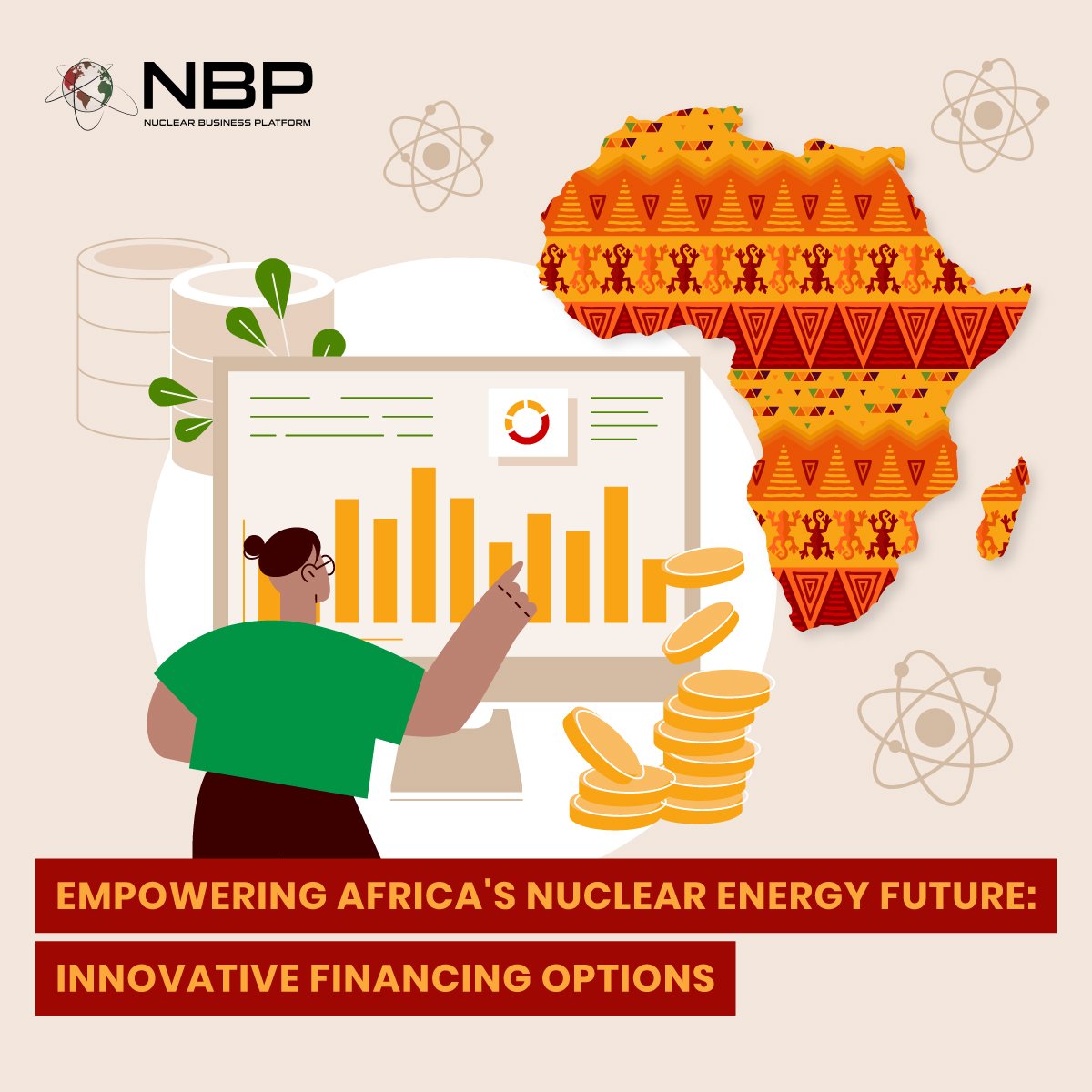
Empowering Africa's Nuclear Energy Future: Innovative Financing Options
Nuclear power plants offer a reliable source of energy for Africa. They also have low operational costs once they are built, and long-term power purchase contracts can reduce revenue risk, and clear, long-term governmental commitment to a nuclear power program can provide confidence to investors too. However, the high capital costs, long construction periods, and the issue of high interest rates, associated with nuclear power plants can be challenging. What are some viable financing options nuclear power plant construction in Africa?
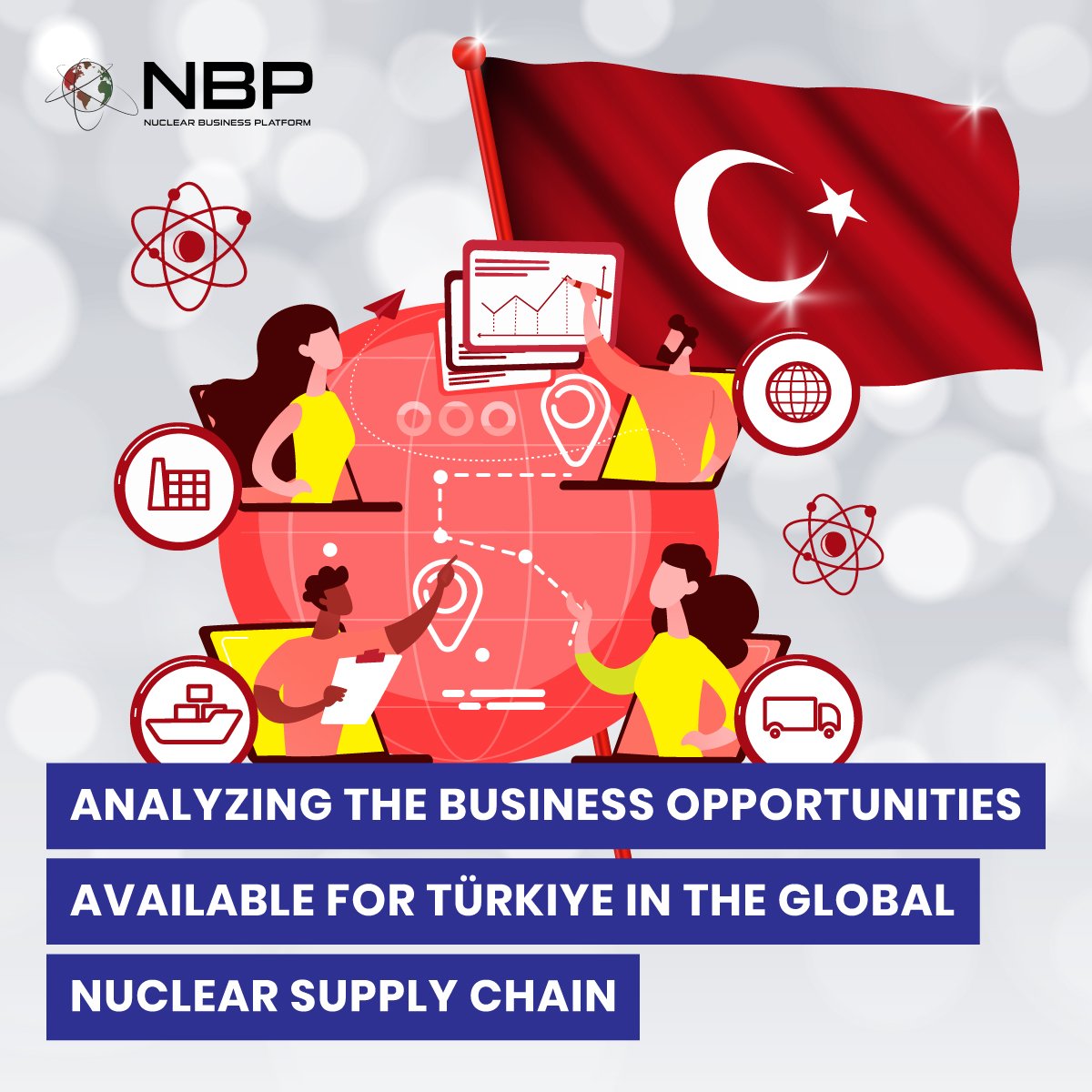
Analyzing the Business Opportunities Available for Türkiye in the Global Nuclear Supply Chain
Türkiye’s entry into the global nuclear energy supply chain presents a plethora of business opportunities. The country’s strategic location, coupled with its growing energy needs, makes it an attractive destination for investment in the nuclear sector.
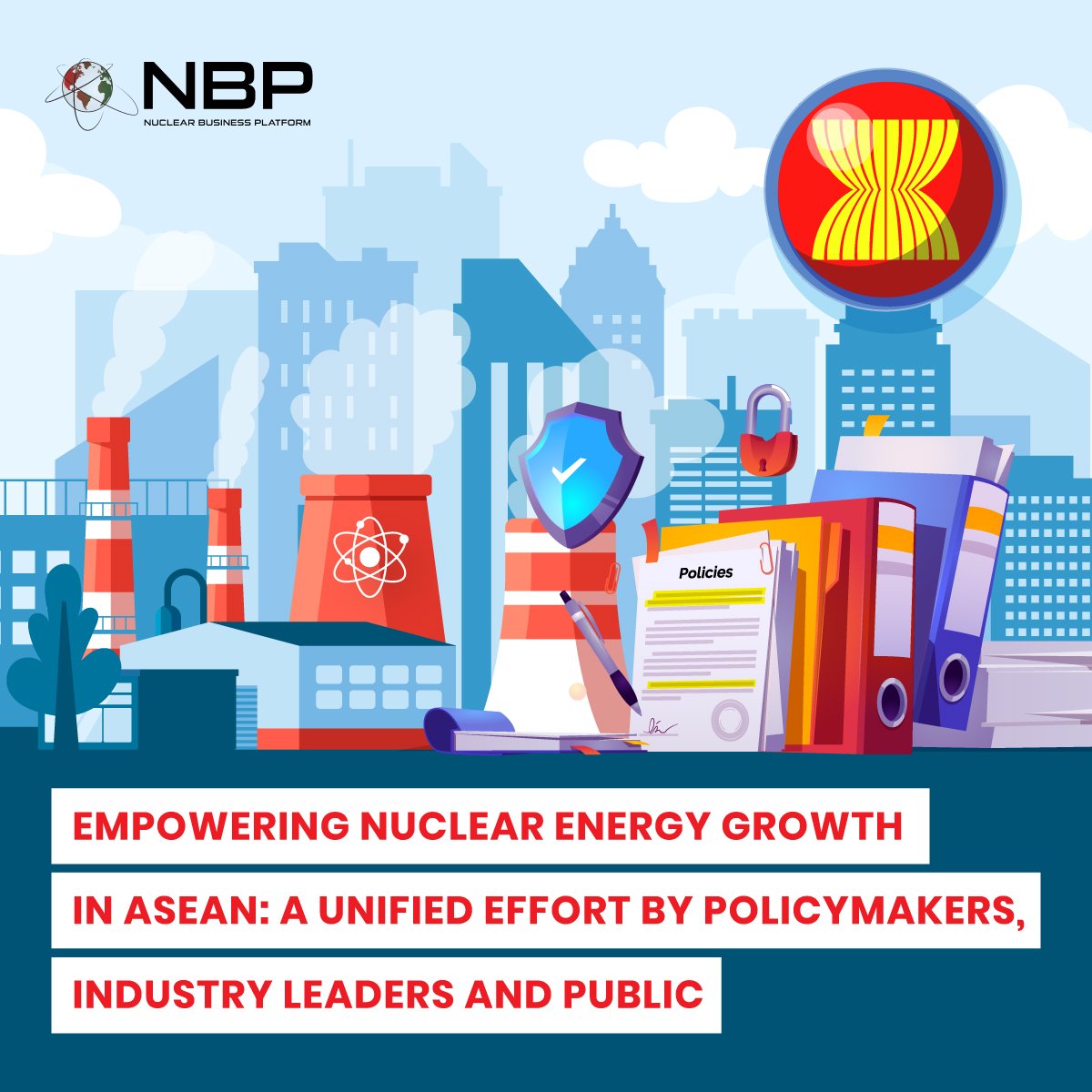
Empowering Nuclear Energy Growth in ASEAN: A Unified Effort by Policymakers, Industry Leaders and Public
As ASEAN nations grapple with the dual challenges of escalating energy demand and climate change, nuclear power has once again emerged as a viable solution. Over the past 15 years, energy demand in the region has surged by 60%, primarily met by imports of fossil fuels. While nuclear energy provides reliable, emissions-free electricity, it faces challenges such as high upfront costs, safety concerns, and waste management. Nevertheless, active nuclear programs in Indonesia and the Philippines, coupled with private sector interest, signal a potential nuclear future in the region. Collaboration among policymakers, industry stakeholders, and public support will be crucial in harnessing nuclear power's role in a sustainable ASEAN future.

Unlocking Africa's Nuclear Potential: Challenges and Collaborative Solutions
The recent Africa Nuclear Business Platform Lite 2023 featured a panel discussion that delved into critical aspects of Africa's burgeoning nuclear energy sector, the existing challenges, the prospects of regional cooperation, and more. Led by Mr. Van Zyl de Villiers, Senior Consultant of the African Commission on Nuclear Energy (AFCONE), the discussion shed light on the continent's nuclear journey.
